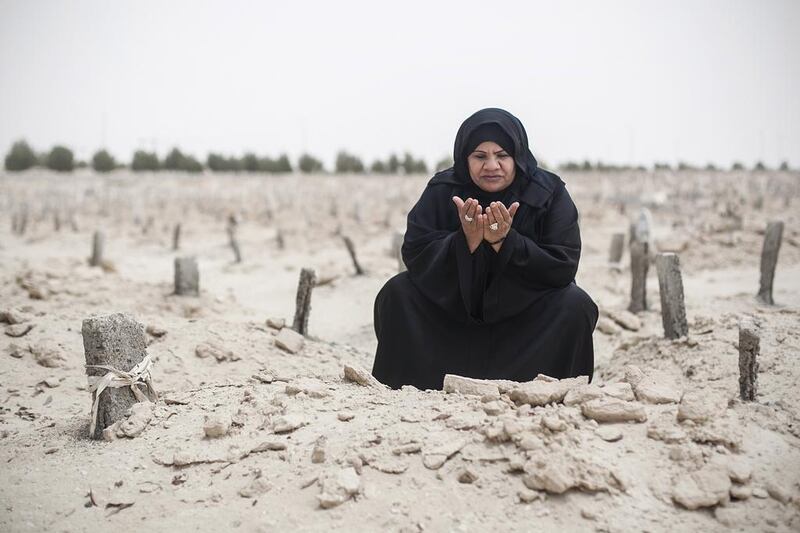ABU DHABI // When Sheikha Salem’s daughter died 15 years ago, the grieving mother looked frantically for someone to wash the child’s body according to Islamic rituals.
“They had to get me an Egyptian couple from another state to wash her,” said Mrs Salem, who was in the United States where Alanood was undergoing treatment for leukaemia.
This was her "turning point", Mrs Salem said. She quit her job with the Ministry of Interior and became a mukrema, someone who washes dead bodies.
“As soon as I returned I washed my daughter again. I asked the women who practise it to teach me how it’s done and washed my daughter myself. I decided that this is what I wanted to do for the rest of my life.”
There are 25 men and women employed by Abu Dhabi Municipality to wash bodies before burial. This is conducted at the Sheikh Khalifa Medical City and Mafraq Hospital mortuaries.
Only two of the 25 are Emirati, Mrs Salem and Mariam Hassan. The women have been doing this kind of work for more than 10 years and are now supervisors.
“Yes, it’s hard on any human being and you get burnt bodies, babies and those who have been in accidents. But I feel like I’m doing a good deed and God has rewarded me,” Mrs Salem said.
Alanood was her first-born child.
“Allah has compensated me generously. He has given me four children and recently a girl,” Mrs Salem said. “I’m very happy.”
She says most people are uncomfortable with her profession.
“When my children were younger it was difficult for them to tell their friends. I told my husband who I am and he can take it or leave it. Now my family is proud of me.”
All bodies are washed, but Muslim bodies are cared for according to the Sunnah.
“With the non-Muslims we wash the bodies according to the wishes of their families. If they would like them dressed in a certain outfit then we will do so,” Mrs Hassan said.
Families can also wash the bodies of their relatives if they request.
“If they would like to do it themselves then we will show them how to do it, but it’s emotionally difficult for a majority of them,” she said.
salnuwais@thenational.ae
______________________________________________________________
Read more on our burial in the UAE series:
■ Emirati morticians deeply affected by death of little girl
■ Working at mortuary a source of solemn pride for Emiratis
■ Grave marking system helps mourners find loved ones in Abu Dhabi cemeteries






